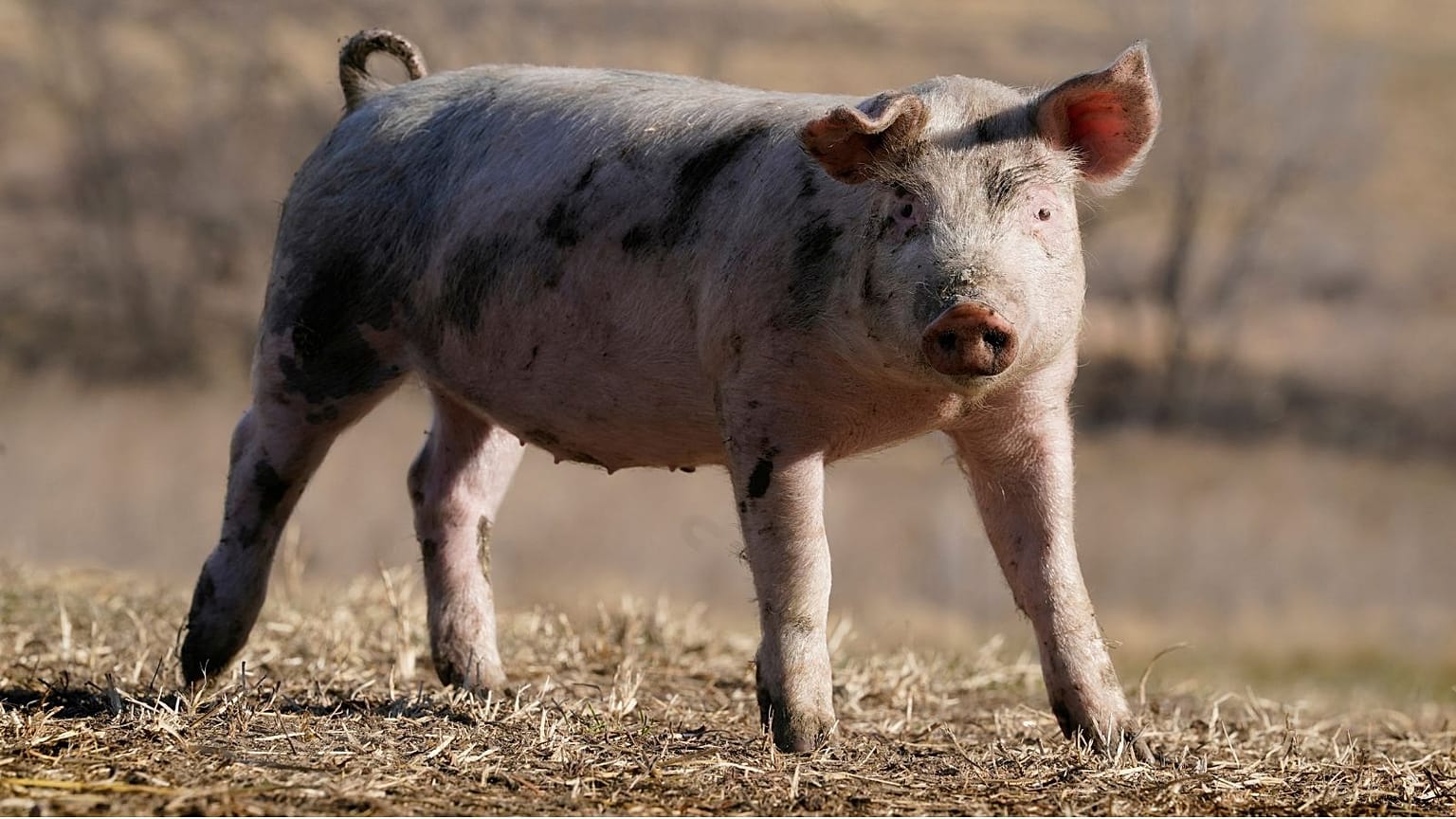Nearly 9,000 dead pigs would be needed for a flight from Paris to New York, the campaign group estimated.
Fat from dead pigs, chickens and cattle are being used to make greener jet fuel - but there's a warning this approach could backfire and end up being worse for the planet.
 ADVERTISEMENT
ADVERTISEMENT
 ADVERTISEMENT
ADVERTISEMENT
The Brussels-based clean transport campaign group Transport & Environment has sounded the alarm in a new report.
As airlines are under pressure to reduce their carbon emissions, which usually come from burning fossil-based kerosene in aircraft engines, they're looking for alternative sources of fuel.
As animal fat is viewed as waste - a by-product of industrial meat production - aviation fuel made from it is considered to have a lower carbon footprint.
However, demand for fuel from this source is expected to triple by 2030, driven primarily by airlines.
The problem is this animal fat is used in many other industries, such as pet food, soap and cosmetics. Yet, as Transport & Environment write in their report: "The availability of animal fats is limited. Simply killing more animals is not an option."
To entirely fuel a transatlantic flight between Paris and New York, 8,800 dead pigs would be needed each way, according to their calculations.
The campaign group also states there's already significant pressure on supplies of animal fat as its use in fuel has already grown forty fold since 2006.
Barbara Smailagic, biofuels expert at Transport & Environment, said: “It turns out pigs will fly. For years we’ve been burning animal fats in cars without drivers knowing. Now they will be fuelling your next flight."
"But that can’t be sustained without depriving other sectors, which will in turn likely switch to damaging alternatives like palm oil."
The report states other industries will resort to palm oil as it has similar properties to animal fats and is the cheapest option available.
However, its rising use has been linked to increased emissions as older forests which store vast amounts of carbon are cleared for new plantations.
"Competing uses for animal fats lay bare the challenge of scaling up waste biofuel production," said Smailagic.
"Animal fats don’t grow on trees. Pet food suppliers, for example, will now have to reduce the sustainability of their products by using palm oil instead," she added.

















